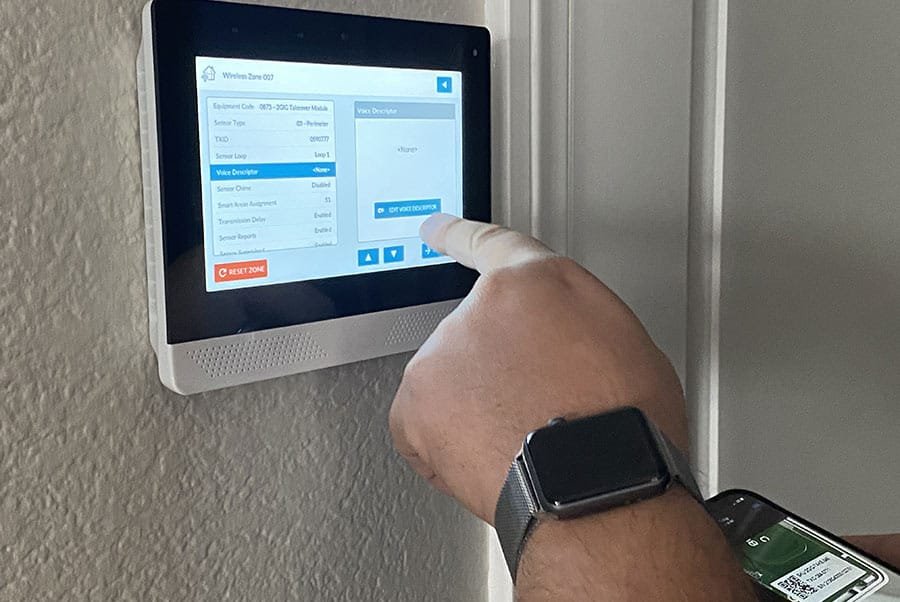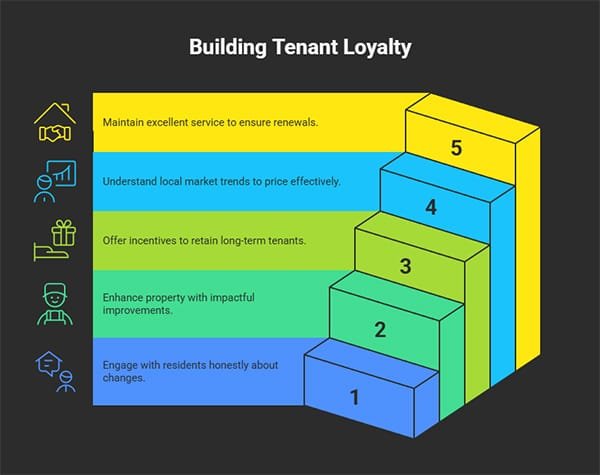
Raising rent is a natural part of managing multifamily properties, especially with rising operating costs, inflation, and increased demand in many markets. But how do you do it without driving away your best tenants?
Many property managers fear the backlash that can come with rent hikes: vacancy spikes, negative reviews, and friction with residents. However, with the right approach, you can increase rent while strengthening tenant relationships.
In this blog, we’ll go over five raising rent tips for increasing rent the right way — balancing profitability and retention.
Use personalized letters or emails that outline:
When the rent increase takes effect
The new amount
Why the change is happening
A contact for questions or feedback
Pro tip: Always frame it around maintaining quality — not just increasing revenue.
According to Buildium’s 2024 Industry Report, 57% of tenants say clear and respectful communication is a top factor in their decision to renew a lease.
Data Point

A Dallas area property saw 78% of residents accept a $45/month rent increase when paired with USB charging outlets and updated kitchen fixtures.
Case Study

Priority maintenance
Early access to new amenities
Discounted renewal rates
Reciprocity is powerful. When tenants feel you're offering something extra, they’re more likely to say yes — even when costs go up.
Insight

Use tools like Rentometer, Zillow, or your own efforts to track current rental rates within a 1- to 5-mile radius.
Properties that adjust rent based on hyperlocal market data — rather than arbitrary annual percentages — retain up to 22% more tenants, according to NAA research.
Stat
Great service builds loyalty, and loyal tenants are more accepting of modest rent increases.
A resident who feels ignored or mistreated is far more likely to move — especially when rent goes up. But a tenant who sees their manager respond promptly, solve problems, and treat them with respect is more likely to stay.
Track service response times
Log feedback and satisfaction surveys
Celebrate staff who go above and beyond
“I don’t love paying more, but the way management handled it — with updates and improvements — made it feel fair.”
Resident Feedback
It depends on your local and state laws. Some areas have rent control or rent stabilization regulations that cap annual increases, while others allow larger jumps. Always check with your local housing authority or legal counsel before issuing notices.
Rent increases are typically more successful when aligned with lease renewal cycles that end during peak rental season (late spring through early fall). This gives tenants fewer attractive alternatives, increasing the chance of renewal.
Yes, but carefully. Even modest increases help you keep up with rising costs and market conditions. For long-term tenants, consider smaller, gradual increases and couple them with loyalty perks to preserve goodwill.
Be open to reasonable negotiations. If a tenant is otherwise ideal (on-time payments, low maintenance), it might be worth offering a slight discount or phasing in the increase over two payments. Document all changes in writing.
Transparency and empathy are key. Consider delaying the increase, offering short-term flexibility, or creating payment plans. This builds trust and long-term loyalty, and can prevent costly turnovers.
Raising rent doesn’t have to mean losing tenants. When approached thoughtfully, increases can actually enhance tenant satisfaction, property value, and NOI.
The most successful property managers don’t just look at the numbers — they look at the experience behind those numbers. With transparent communication, value-driven upgrades, and consistent customer care, rent increases can feel like a step forward, not a setback.
Time Management Hacks for Property Managers: 15 Tasks to Automate, Delegate, or Eliminate
Read MoreDealing with difficult tenants is never easy, but with preparation, empathy, and clear policies, you can turn tense situations into...
Read MoreLearn 5 proven rent-raising tips, from communication to timing, without risking tenant turnover. Keep occupancy high and relationships positive.
Read MoreImproving tenant retention doesn’t require massive budgets or complicated systems—it’s about being proactive, responsive, and human.
Read More